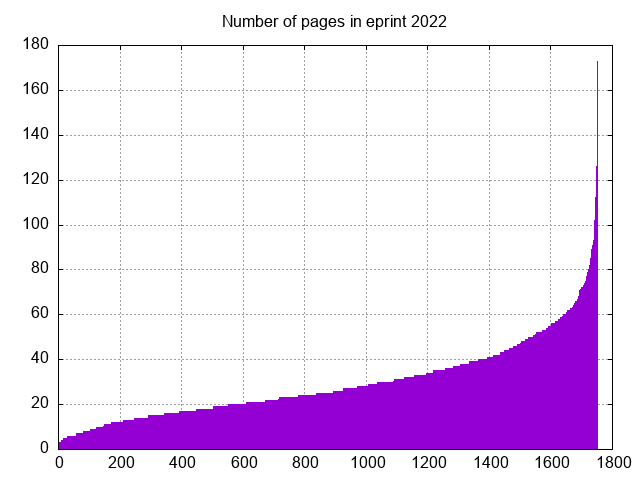I recently saw a suggestion from Bo-Yin Yang on eliminating the references as counting toward a page limit on publications from IACR conferences. That strikes me as a great idea, and consistent with what other societies are doing.
On the other hand, it caused me to wonder why we have limits at all. This is related to an earlier comment I made on a friend who found an error in a number theory paper that is over a hundred pages. Science is getting more and more complicated, and sometimes it takes a lot of space to explain your arguments. The only reason why we cling to page limits seem outdated to me:
- the reviewing load on referees. If a paper is too long, then it takes too much effort to read the paper, and referees/members of program committees are already too overloaded.
- the limits imposed by publishing on paper. These are a holdover from the days when everything was published on paper, but these days nobody goes to a library and journals have no such artificial limits remaining.
I would argue that neither of these is a good reason to restrict the length of papers. I sympathize with reviewers who are having to put in enormous amounts of effort to review papers, but let’s be realistic – most papers don’t really get read closely enough by program committees to certify their accuracy. That’s something that should be reserved for public literature.
In order to further my argument, consider the lengths of papers being submitted to eprint.iacr.org: It turns out that of the 1754 papers submitted in 2022, 661 have more than 30 pages (37%). 223 of them (12.7%) have at least 50 pages. One of them is 173 pages! This illustrates the limitation we are placing on authors to come in under 30 pages. It runs the risk of excluding the most interesting papers, and it runs the risk of publishing incomplete papers.

